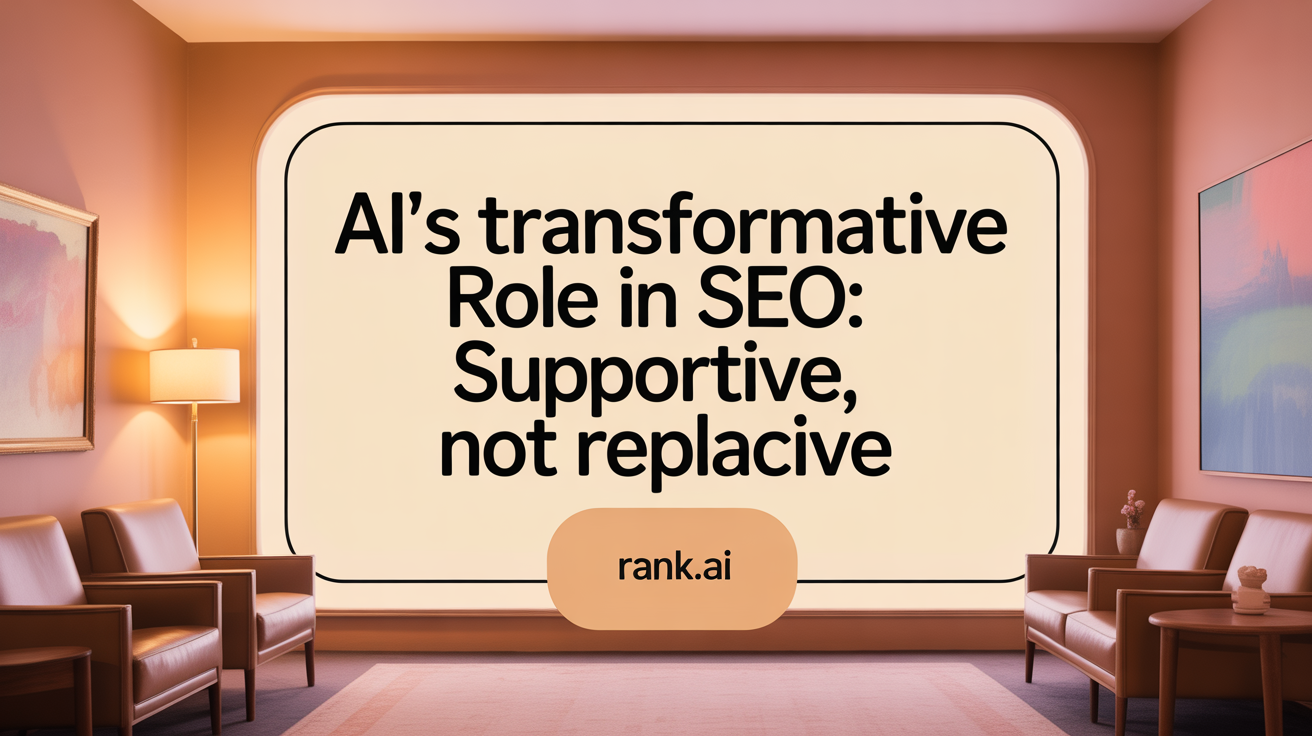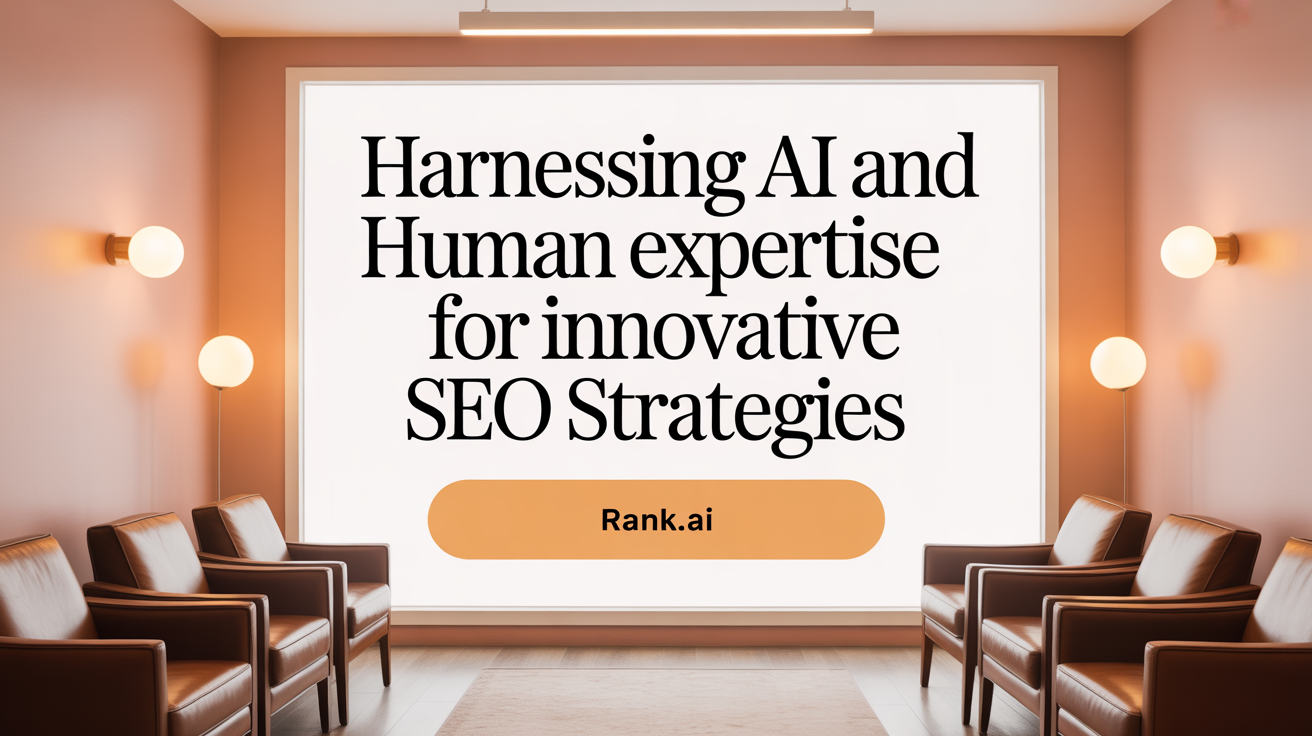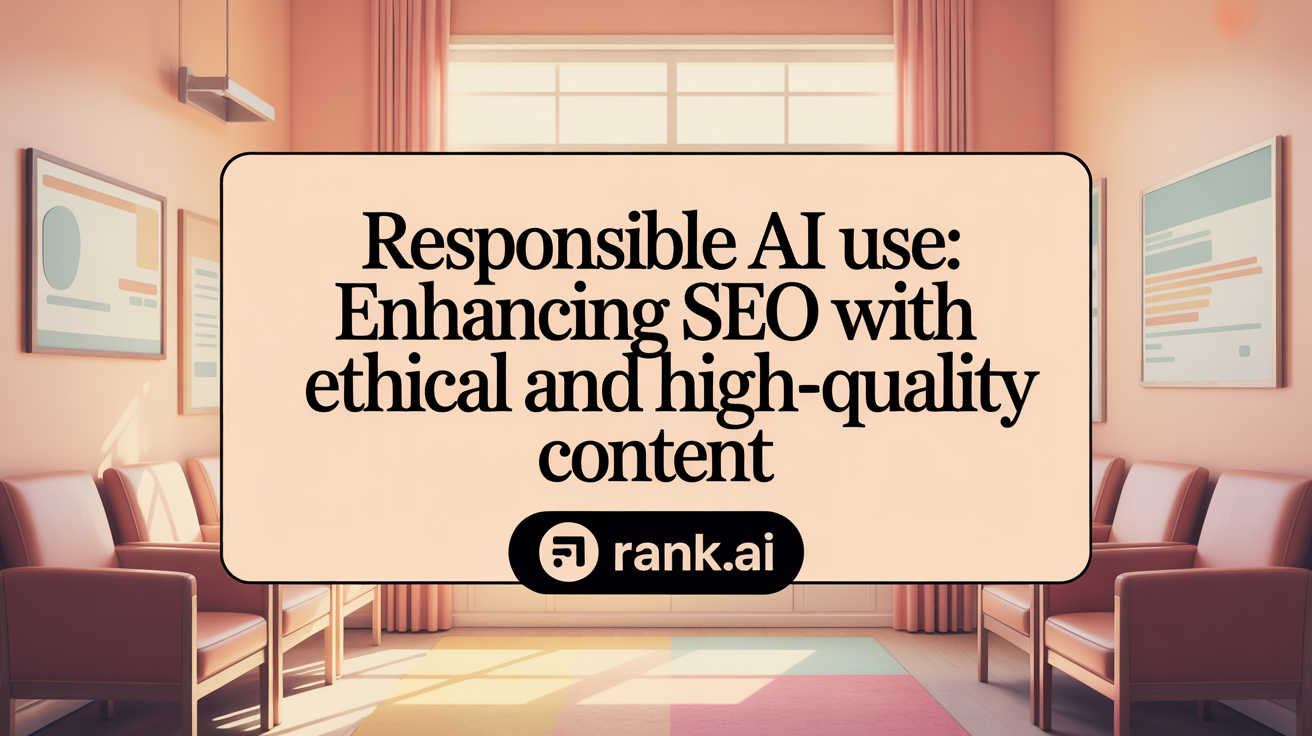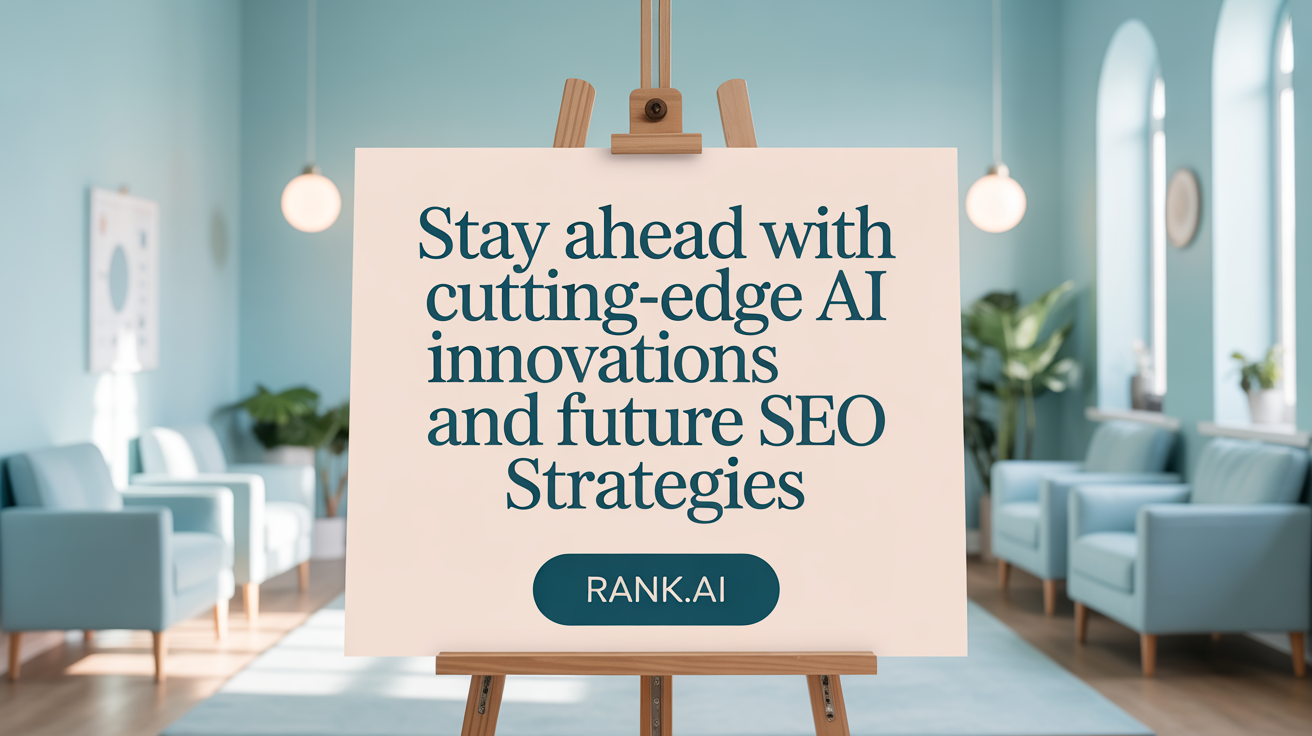The Evolving Intersection of AI and SEO
As artificial intelligence (AI) rapidly transforms digital marketing, understanding how AI tools can support search engine optimization (SEO) without supplanting human expertise is critical. This article explores how AI enriches SEO strategies, the balance required between automation and human insight, and why traditional SEO principles remain essential in the AI era.
Understanding AI’s Transformative Yet Supportive Role in SEO
 AI is fundamentally reshaping the way businesses approach search engine optimization by automating and enhancing various tasks. It introduces sophisticated tools that analyze large datasets swiftly, predict search trends, and adapt content strategies in real time.
AI is fundamentally reshaping the way businesses approach search engine optimization by automating and enhancing various tasks. It introduces sophisticated tools that analyze large datasets swiftly, predict search trends, and adapt content strategies in real time.
One of the prominent innovations is Google’s Search Generative Experience (SGE), which combines traditional search results with AI-generated summaries. This enables instant, relevant answers directly within search interfaces, minimizing the need for users to click through multiple links. As a result, SEO strategies need to evolve, emphasizing the creation of comprehensive content that can be easily summarized and referenced by AI systems.
AI algorithms also improve the understanding of user intent, allowing search results to be more personalized and relevant. These systems utilize Natural Language Processing (NLP) and Machine Learning (ML) models like BERT and RankBrain to interpret context, emotional nuance, and long-tail queries. Consequently, optimizing content for conversational phrases, structured data, and clarity has become more critical.
AI-driven SEO tools such as Semrush AI, Ahrefs, Surfer SEO, and ChatGPT revolutionize the process of keyword research, content optimization, and predictive analytics. They assist marketers in identifying high-value keywords, generating content ideas, and analyzing backlink profiles—all while saving time and reducing guesswork.
In brief, AI's role is to support human expertise rather than replace it. It streamlines workflows, uncovers market insights, and helps craft more targeted content, enhancing overall campaign effectiveness. Nevertheless, human oversight remains essential for maintaining trustworthiness, strategy, and contextual relevance, especially in sensitive fields.
| Tool | Main Function | Additional Capabilities |
|---|---|---|
| ChatGPT | Content generation, editing | Tone alignment, audience targeting |
| SEMrush AI | Keyword research, trend analysis | Competitive audits, predictive analytics |
| Surfer SEO | Content optimization, structure analysis | On-page SEO, readability, schema markup |
| Ahrefs | Backlink analysis, site audits | Authority assessment, competitor link profiles |
Overall, AI is transforming SEO by emphasizing content quality, technical precision, and user experience. While it automates many tasks, the strategic and creative aspects—such as building a brand voice, understanding unique audience needs, and ensuring ethical standards—must still be managed by human experts.
Benefits and Limitations of AI in SEO Practices

What are the main challenges of using AI in SEO?
The main challenges of using AI in SEO include staying ahead of frequent search engine algorithm updates that can impact rankings and the effectiveness of AI-driven strategies. Additionally, balancing AI automation with human oversight is crucial to ensure quality, authenticity, and relevance of content. Addressing data privacy and ethical considerations is vital, especially when leveraging user behavior and personal data for personalization and optimization. Integrating AI technologies for semantic search requires technical expertise and ongoing adaptation to evolving search trends and voice search optimization. Despite these challenges, AI can significantly enhance SEO efforts by providing data-driven insights, improving search relevance, and increasing organic traffic.
Efficiency gains through automation in keyword research and content creation
AI tools have revolutionized SEO by automating core tasks such as keyword research and content creation. They can analyze vast amounts of data quickly, identifying high-potential keywords, including long-tail phrases that align with user intent. Content generation tools like ChatGPT assist in brainstorming ideas, drafting outlines, or developing full articles, saving time and effort. Automation streamlines workflows, allowing marketers to focus on strategic planning and creative aspects.
AI's ability to analyze large datasets and predict search trends
One of AI's greatest strengths is its capacity to process enormous datasets to uncover patterns and predict future search trends. Predictive analytics tools can forecast shifts in user behavior and search interest, giving brands a competitive edge. For example, AI algorithms analyze search volume fluctuations, competitors' strategies, and industry developments to suggest content topics and update optimization tactics proactively.
Limitations including AI-generated content quality and originality concerns
Despite its advantages, AI-generated content often faces criticism related to quality and originality. AI models can produce thin, generic, or inaccurate information if not properly supervised. The lack of human nuance, emotional intelligence, and understanding of complex business contexts can lead to content that feels artificial or inconsistent with brand voice. Relying solely on AI for content creation without human editing risks losing engagement and credibility.
Need for human oversight to ensure accuracy, brand voice consistency, and ethical standards
To maximize AI benefits while mitigating its downsides, human oversight remains essential. Experts should review, refine, and validate AI-generated content to ensure accuracy, quality, and alignment with brand messaging. Humans also serve as ethical guardians, preventing misinformation, copyright violations, and spammy tactics. Their strategic insights are crucial for adapting SEO tactics to changing market dynamics and maintaining trustworthiness.
| Aspect | AI Capabilities | Human Necessities |
|---|---|---|
| Keyword Research | Identifies trending and high-ranking keywords | Strategic targeting, brand relevance, market alignment |
| Content Generation | Drafts outlines and articles | Fine-tuning tone, ensuring originality, factual accuracy |
| Technical SEO | Conducts site audits, improves schema markup | Complex troubleshooting, technical decisions |
| Trend Analysis | Predicts future search behaviors | Interpreting data within business context |
| Ethical & Quality Control | Detects low-quality or spam content | Upholding standards, ethical considerations |
AI tools significantly support SEO by automating repetitive tasks and providing valuable insights, but they work best when complemented by skilled human intervention for strategic, ethical, and brand-specific purposes.
Integrating AI Tools Within Traditional SEO Workflows
Examples of AI-powered SEO tools like Ahrefs, SEMrush, Surfer SEO, Frase, ChatGPT
Many modern SEO strategies are now supported by AI-driven tools. Platforms such as Ahrefs and SEMrush analyze backlink profiles and keyword trends, giving businesses detailed insights. Surfer SEO focuses on content optimization by analyzing top-ranking pages and suggesting improvements. Frase helps with content planning and answering user queries efficiently. ChatGPT and similar large language models support the creation of draft content, meta descriptions, and FAQs.
These tools not only automate data collection but also generate actionable insights that help marketers refine their strategies quickly. For example, SEMrush’s AI features can identify emerging keywords, while Ahrefs’ backlink analysis assists in building authoritative links.
How AI assists with metadata creation, content formatting, technical audits, and site performance optimization
AI tools streamline many core SEO tasks. Generating meta tags, headlines, and descriptions becomes faster and more consistent with AI assistance. Content formatting tools suggest improvements for readability and structure, aligning content with user intent.
Technical audits are simplified by AI-powered scanners like Screaming Frog or Semrush Site Audit, which automatically identify issues such as broken links, slow-loading pages, or schema markup errors. These tools also recommend fixes, saving time and reducing errors.
Site performance optimization is enhanced through AI tools that analyze user interactions and speed metrics, suggesting adjustments like image compression or code minification. This comprehensive approach ensures websites are optimized for both search engines and user experience.
Combining AI-generated outlines and drafts with human editing and strategic refinement
While AI can rapidly produce outlines, content drafts, and keyword suggestions, human oversight remains crucial. Marketers and content creators review AI output to ensure alignment with brand voice, messaging, and strategic goals.
Strategic refinement involves adjusting content structure, adding nuanced insights, and ensuring factual accuracy. Human editors also optimize content for emotional engagement and cultural relevance, aspects that AI models cannot fully grasp.
This collaboration enhances productivity—AI handles the bulk of initial drafts, freeing humans to focus on creative, strategic, and ethical considerations.
Practical steps for small businesses to balance AI usage with SEO fundamentals
Small enterprises should start by assessing their current SEO health and identifying high-impact areas. Using free or low-cost AI tools like ChatGPT or Ubersuggest can boost productivity without significant investment.
Next, they should prioritize foundational SEO practices—such as keyword research based on user intent, technical site audits, and high-quality content creation—working alongside AI support tools.
Balancing AI and human effort involves continuous monitoring and adaptation. Regularly updating content, maintaining backlinks, and ensuring technical health are routine practices that AI can assist with but should not replace human oversight.
Finally, ongoing education about emerging AI capabilities and SEO trends will enable small businesses to leverage these tools effectively, maintaining competitiveness in a rapidly evolving landscape.
Collaboration Between AI and Human SEO Expertise

Why human input remains vital in SEO
While AI tools have revolutionized many aspects of search engine optimization, human expertise continues to play a crucial role. Professionals interpret complex analytics, adjust strategies based on nuanced market trends, and craft brand voices that resonate with target audiences.
One of the primary tasks humans handle is strategic keyword targeting. AI can suggest high-ranking keywords, but understanding the context, relevance, and long-term brand alignment requires human insight.
Limitations of AI in grasping subtle nuances
AI algorithms excel at analyzing data but often fall short in understanding cultural contexts, emotional triggers, and subtle nuances that influence user behavior. For example, an AI might identify keywords for a campaign targeting mental health, but it may not grasp the sensitivity needed in tone or the ethical considerations in messaging.
The importance of trust, creativity, and ethical judgment
Human creativity is essential for producing authentic, compelling content that builds trust with audiences. Ethical oversight ensures that SEO practices adhere to standards, avoiding misinformation or black-hat tactics.
Building trust involves transparency, accurate sourcing, and aligning content with societal values—areas where human judgment is irreplaceable.
How AI supports decision-making without replacing humans
AI enhances decision-making by providing insights through data analysis, automating repetitive tasks, and generating content ideas. For instance, AI can quickly analyze backlink profiles or suggest content improvements.
However, ultimate decisions about content quality, brand voice, and strategic priorities are best made by humans. AI acts as a supporting tool, freeing up time for creative and strategic tasks.
Best practices for human-AI collaboration in SEO
Successfully integrating AI involves clarity on what tasks AI handles—such as technical audits, keyword research, or content outlines—while humans focus on creativity, messaging, and ethics.
Regular reviews, continuous learning, and staying updated on SEO trends ensure that AI tools complement human efforts effectively.
This combined approach ensures an SEO strategy that's innovative, trustworthy, and aligned with business goals, leveraging AI for efficiency without sacrificing the human touch.
Differentiating AI-Driven SEO from Traditional SEO Methods
How has the shift from keyword density to context, user intent, and semantic richness changed SEO?
Traditional SEO focused heavily on keyword density, where placing specific keywords repeatedly helped rank content. Now, AI-driven SEO emphasizes understanding the context of search queries, focusing on user intent and the semantic meaning behind words. This shift means that creating comprehensive, intent-focused content that answers specific questions is more effective than keyword stuffing.
AI tools analyze content to ensure alignment with natural language and user expectations, making content more engaging and relevant. This approach also encourages content segmentation and clear structuring, which benefits both users and search engines.
What role do advanced NLP and machine learning models like RankBrain, BERT, and MUM play in AI SEO?
Models like RankBrain, BERT, and Google’s MUM are central to modern AI SEO. RankBrain uses machine learning to interpret search intent more accurately, especially for complex or conversational queries.
BERT (Bidirectional Encoder Representations from Transformers) helps Google understand the context of words in search queries, making results more relevant. MUM (Multitask Unified Model) takes this further by processing multi-modal content—text, images, videos—and understanding complex queries across languages.
Together, these AI models enable search engines to interpret natural language better, prioritize high-quality, contextually relevant content, and deliver results that align with user intent.
Why do SEO fundamentals like E-E-A-T, backlinks, and technical SEO still matter?
Despite advancements in AI, fundamental SEO principles remain crucial. E-E-A-T (Experience, Expertise, Authority, Trustworthiness) helps establish credibility, especially in fields like health or finance.
Backlinks from reputable sources continue to serve as indicators of trust and authority, heavily influencing rankings. Technical SEO—including site speed, mobile optimization, and structured data—is essential to ensure search engines can accurately crawl and index content.
AI tools often analyze these traditional signals to assess website quality, making them integral to an effective SEO strategy.
How do AI-generated search results incorporate traditional SEO signals?
AI-driven search features, such as Google’s Featured Snippets or AI summaries, rely heavily on traditional SEO signals. They source information from authoritative, well-structured content with clear data markup.
Content optimized for AI results often involves using structured data, proper headings, internal linking, and citations. These signals help AI systems identify trustworthy information that can be summarized or featured.
In conclusion, while AI has transformed how search results are presented, the underlying signals from traditional SEO—authority, content quality, technical optimization—remain vital. Combining these ensures visibility and relevance in an evolving search landscape, underscoring the continuous importance of solid traditional SEO practices alongside AI innovations.
Best Practices for Responsible AI Use in SEO

Is AI content acceptable for SEO?
AI-generated content can be useful for SEO when used responsibly and ethically. Google recognizes AI as a tool that can assist in content creation, but it emphasizes the importance of maintaining content quality, relevance, and authority.
Using AI primarily as a support tool for human creativity helps ensure the generated content aligns with the principles of E-E-A-T (Experience, Expertise, Authority, Trustworthiness). When AI drafts outlines, ideates, or suggests keywords, human oversight is essential to verify facts, add unique insights, and ensure the content meets user needs.
Google’s spam policies discourage manipulative or unhelpful AI content that is thin, generic, or designed solely to rank without providing real value. However, when AI enhances original research, creative storytelling, or technical accuracy—while a human reviews and refines—the content can bolster SEO efforts.
In practice, responsible AI use involves generating content that complements strategic goals without risking penalties. For example, AI can quickly produce drafts or suggest improvements, but final content approvals should always come from human experts.
Ultimately, combining AI efficiencies with human judgment ensures content remains authentic, engaging, and valuable to users. This responsible approach supports sustainable SEO growth and aligns with evolving search engine guidelines.
Future Trends and the Ongoing Evolution of AI-Supported SEO

Emerging AI features such as Google’s AI Mode, multimodal and conversational search
Google’s latest AI Mode and similar features are set to transform how users interact with search engines. These features enable multimodal and conversational search experiences, allowing users to combine text, voice, images, and videos in their queries. Businesses need to adapt by optimizing content for diverse formats, ensuring structured data is in place for easier recognition.
AI models like Gemini and Claude can search and synthesize online information more effectively. This evolution emphasizes the importance of rich, diverse content types and improves how search engines understand and prioritize relevance.
Growing importance of voice search optimization and conversational long-tail keywords
As AI-powered voice assistants become more prevalent, optimizing for voice search is crucial. This shift involves targeting long-tail, conversational keywords that mirror natural language and user intent.
Content should answer specific questions, incorporate natural phrasing, and focus on featured snippets to increase visibility in voice search results. Embracing these strategies can help brands stay ahead as voice queries often have higher conversion rates.
Focus on user experience personalization through AI insights
AI’s ability to analyze user behavior and preferences enables highly personalized search experiences. Customizing content recommendations, website layouts, and product suggestions can increase engagement and conversions.
Tools like Hotjar and Crazy Egg analyze user interactions, guiding optimizations that better serve individual needs. Personalization not only enhances user satisfaction but also boosts SEO performance through improved dwell time and lower bounce rates.
Predicted increasing integration of AI predictive analytics in SEO strategy
Predictive analytics is poised to become a fundamental part of SEO planning. AI can forecast search trends, algorithm shifts, and consumer behavior, allowing marketers to proactively adjust their strategies.
This integration supports smarter decision-making, content planning, and resource allocation. Continuous data monitoring and analysis through AI will help maintain competitiveness in an increasingly dynamic digital landscape.
Continuous need for human adaptability in a changing digital landscape
Despite advancements, human oversight remains essential. AI tools excel at data analysis and automation but lack the nuanced understanding of brand voice, ethics, and complex customer relationships.
Marketers must stay adaptable, learning new AI functionalities, updating strategies, and maintaining authentic engagements with audiences. Combining AI efficiencies with human creativity ensures sustainable and effective SEO approaches.
| Trend | Description | Impact on SEO |
|---|---|---|
| Google’s AI Mode & Multimodal | Interactive, multi-format search capabilities | Broader content optimization, richer snippets |
| Voice Search Optimization | Targeting conversational long-tail keywords | Increased visibility, higher engagement |
| Personalization via AI | Tailored user experiences based on behavior and preferences | Improved user engagement and loyalty |
| Predictive Analytics | Anticipating future search trends and algorithm changes | More proactive, data-driven strategies |
| Human Creativity & Flexibility | Ongoing adaptation and nuanced understanding | Sustained relevance and authenticity |
The future of SEO will blend advanced AI capabilities with strategic human insights. This synergy is essential to navigate the evolving digital landscape effectively.
Balancing AI Innovation with Human Expertise for SEO Success
AI tools are undeniably reshaping how SEO is practiced by automating routine tasks, enhancing data analysis, and refining content optimization. However, these technologies do not replace the strategic thinking, creativity, and ethical considerations only human professionals provide. Effective SEO in the AI era depends on a harmonious blend of advanced AI capabilities and seasoned human insight, ensuring that content remains authentic, valuable, and aligned with business goals. By responsibly integrating AI tools within traditional SEO workflows, marketers can harness AI’s power to stay competitive, adapt to evolving search behaviors, and deliver meaningful user experiences while preserving the foundational principles that have long underpinned search success.
References
- The Future of SEO: How AI Is Already Changing Search Engine ...
- Why AI Can't Replace Human SEO Expertise - Websults
- AI search is booming, but SEO is still not dead - Search Engine Land
- AI's Impact on SEO - Sperling Interactive
- Using AI in your SEO strategy - Shopify Academy
- AI Won't Replace Good SEO—Here's Why - MarketDesign Consulting
- SEO AI Optimization: How AI Is Reshaping Search Engine ...
- SEO vs. AISO: What AI Search Optimization Means for Brand Strategy
- The impact of AI on SEO: Transforming the Landscape | Articles



